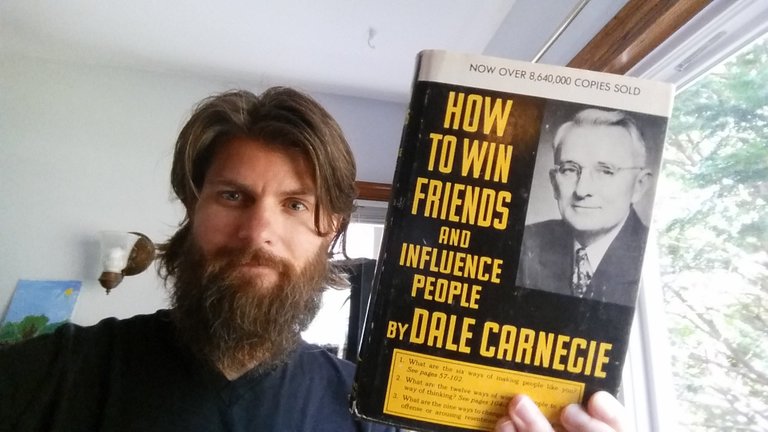
I recently finished reading "How To Win Friends And Influence People" by Dale Carnegie. I expected to not like it at all. Encouraged by a few people I respect, I kept reading. I'm glad I did. I got some good things out of it.
This is actually my second time reading the book. I read it when I was younger and remembered a good amount of it, but I think it was worth re-reading. I'm glad I did.
First, the reason that I thought I wouldn't like the book is that I thought it taught people how to be manipulative. I still sort of think that's the case. The chapter titles don't help any, as there's actually a chapter entitled "How to Make People Like You". That sounds awfully manipulative (in the bad sense) to me.
However, I think the book redeems itself a little. It goes out of it's way to say that being genuine is the best approach. It gives numerous examples of this and also gives warnings against insincerity.
I think it sells itself as something more than it is. It claims to be the missing "manual" for dealing with people. The author talks about how they researched at great length and didn't find a course or book that helped people like this book is supposed to. I disagree, but I still recommend this book.
I think that most of the ideas in the book are found in the Bible, but they are lifted from there and not even cited. Even though most of these principles come from Scripture, about the only reference or credit given to it is the Golden Rule - Do Unto Others as You Would Have Them Do Unto You - he couldn't get away with not citing Scripture on that one as almost all of his readers would have known where it was from. But he did try to get away not giving credit to Scripture on most of the other Scriptural principles he presented.
Again, I think the book is worth reading. The examples given to illustrate the principles are often helpful. Though, I strongly dislike his frequently using Presidents of the United States as role models. I think it's better when he gives examples of situations with people that are more likely to face the problems we as normal people encounter. He does plenty of that, but U.S. Presidents are frequently used as examples of good behavior.
These kind of books on success from this era often focus on famous people of the time who were rich, famous and had a lot of influence. I often strongly distrust these figures and disagree with how they used their influence to manipulate society. The result is that I somewhat distrust books like these. "Think And Grow Rich" is another in this vein. Worth reading... but with many grains of salt.
I almost inevitably get something out of the books I decide to read. It's very rare that a book is a complete waste of time. It's a good mental exercise to parse through what you agree with, what newly presented ideas to consider and what you strongly disagree with. If you agree with everything an author says... maybe you aren't reading critically enough yet. We're all different and I can support and recommend books without agreeing with everything in them.
Have you read "How To Win Friends and Influence People"? Would you recommend that other people read it or not?
Thanks for reading this!
Until next time,
I read that book many years ago. Still have it. I still think about some of the stuff to date.
The person who most recently encouraged me to read it also recommended that I revisit it every year. I'll at least have it in my library and I'll probably re-read it again later, but not committing myself to it now :-)
@matthewdavid, I have never read this book. I believe that your point about reading critically is important. We can't just read blind. We need a lens of objectivity in everything that we process.
Thanks for that great reminder!
It's a very old school book, one of the first of it's kind that paved the way for many others. I'm sure how dated it may seem now ... I wonder what Dale would make of it all in the social media era!
Good question and prompt for thought.
His advice to "let the other person" talk does not have a direct corollary in social media because you aren't in each each other's presence. A "like", upvote, retweet may be similar, but doesn't have the same effect.